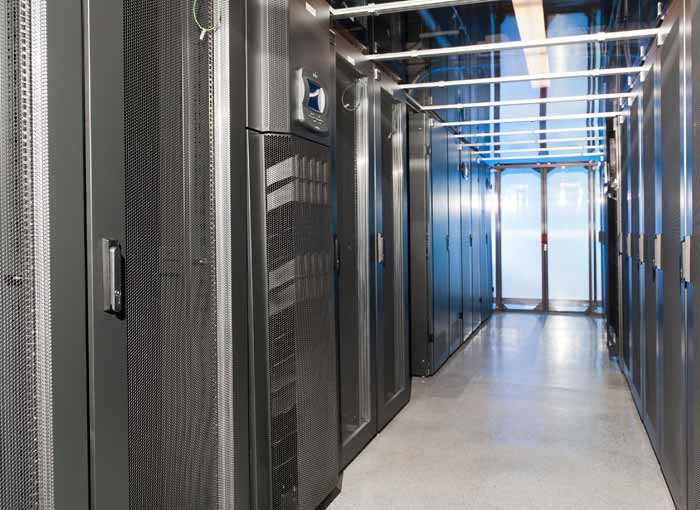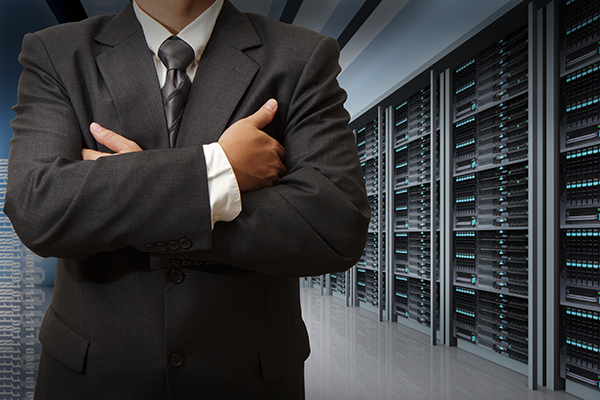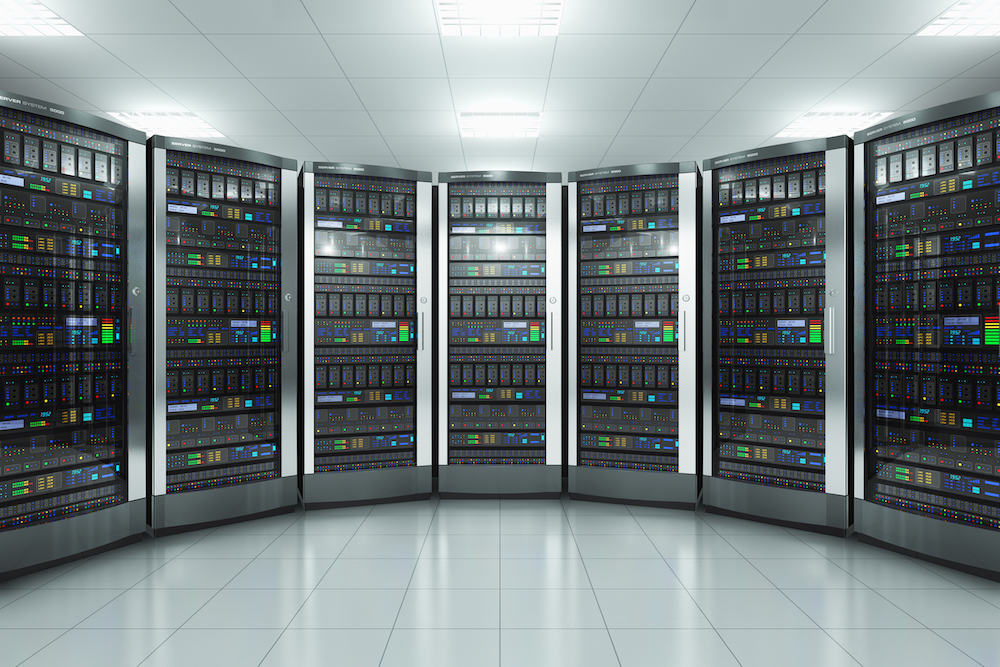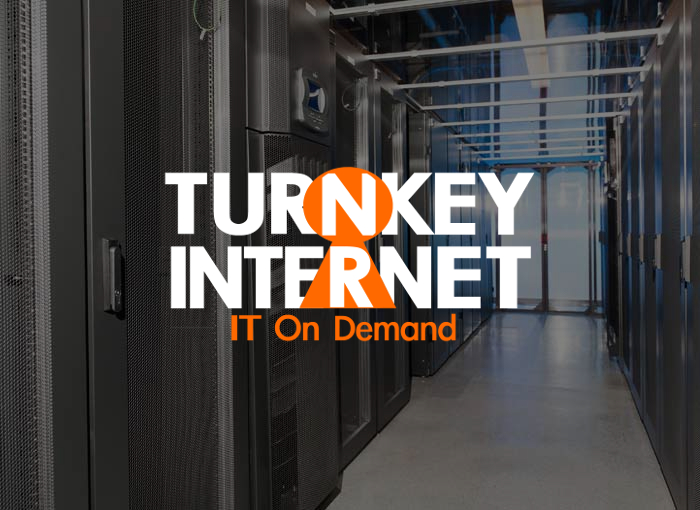Archive for the ‘data center’ tag
What Makes a Green Data Center Green? no comments

It shouldn’t come as a surprise when I tell you that we humans haven’t been too kind to Mother Nature lately. In fact, it seems that every time you open the newspaper or turn on your TV, there is a new fact or statistic telling us all how we are destroying our planet. And it’s not just you and me. It’s the sum of our everyday, first world amenities that may be slowly taking a toll on the rest of the plant. The airline and automobile industries, the pharmaceutical industry and businesses involved with fertilizers are just a few things we take for granted that could possibly be hurting us more than helping.
But while over 7 billion people roam the Earth, many of us, are slowly becoming more conscious on the effect we are having on our planet. Here at TurnKey Internet, we realize the effects data centers can have on the environment as well. Ever since we established our company, we’ve been taking large strides to make our data center as green as possible.
But how can you make a data center green? And what does it take? Well, let us tell you!
We’ll start from the outside. If you drive up to our data center, you may not notice one of our coolest and biggest features that make us so green. We have an advanced on-site solar array that provides clean, pollution-free power that covers our entire roof!
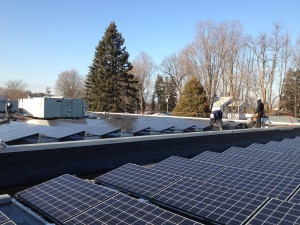
As we head inside, you probably wouldn’t notice something else that would be right in front of your face. The lights! You know those little energy saving lights you buy for your home? Well imagine if you could bring them to work with you, replace those awful florescent lights, and save money while using a lot less energy.
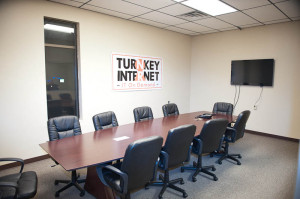
Next, we head into the data center. If you have been in a data center before, then you might notice something drastically different about ours. Well we call them “pods” or to be more specific, state-of-the-art Smart Aisle Cold Containment Pods. These awesome things use a fraction of the amount of energy typically used in a data center by using in-row precision spot cooling. This spot cooling works with in-rack temperature sensors that regulates the climate and keeps the servers at an optimal temperature.
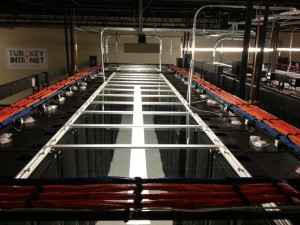
Finally, another great feature at our data center is that we receive hydroelectric power for New York’s Niagara Falls, thanks to the ReCharge New York program.

That’s right. Those beautiful falls are helping us become one of the most energy-efficient data centers around. Because here at TurnKey we mean business… and we mean green!
To learn more about TurnKey Internet’s Green Data Center, visit www.turnkeyinternet.net/green
Follow Us :Share :
4 Considerations When Selecting a Cloud Provider no comments
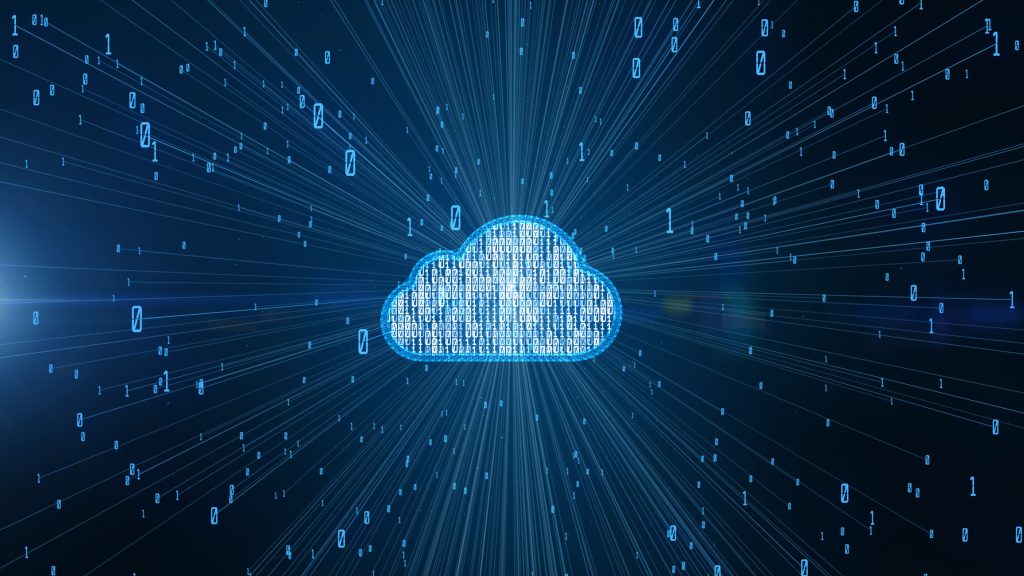
Once you have decided that storing your data in the cloud is the right decision for your business, you will need to find the right provider and data center. You are placing your mission-critical data in the hands of a provider, so you must make sure that you choose the right one.
With all the cloud connectivity providers, it can be quite challenging to choose the right partner. All cloud providers are not created equal and a company’s choice of a cloud provider is critical to long-term success.
Here are 4 crucial considerations your company must consider when choosing a cloud connectivity provider:
Supporting Multi-cloud and Hybrid Cloud Strategies
More and more companies are choosing a hybrid cloud and/or multi-cloud approach to their cloud deployment. There are providers that offer the best of both worlds. If you choose such a provider, you need to know what support their public cloud provider has for hybrid and multi-cloud strategies.
Meets Security Standards
Frequent system audits are also necessary in order to ensure that all data centers meet or exceed industry standards for data security. When you are searching for a cloud provider, ask potential candidates about their compliance with SSAE-18/SOC1. This set of standards measures the amount of control that a data center maintains over your sensitive data and financial information. An audit will report any flaws in the data flow. You should also inquire about compliance with the Health Insurance Portability and Accountability Act (HIPAA). This regulation ensures the security and privacy of private health information that is stored or hosted in a data center.
Data Security
What is the cloud provider doing to keep your business secure? It should go without saying that security remains a crucial factor in your cloud needs, as no company can afford to compromise on it. Ask potential providers what network and server-level security measures they have in place to protect your data. Security measures to look for include encryption, firewalls, antivirus detection, and multi-factor user authentication. Technology is constantly changing and improving, and you need to be able to trust that your cloud provider will keep up with the evolution of security needs.
Service Levels and Support
It is hard to evaluate customer support until you will run into errors, complications, and queries and will need to contact the provider’s support team. If you need help, will you be able to get it quickly and simply? Before you choose a cloud provider, ask questions upfront about what kind and level of support they offer.
Choosing to put your business information or IT infrastructure in a cloud provider’s data center rather than housing it on-site is an important decision that requires careful vetting of your potential provider. Once you have chosen the right provider, you can trust that their data center will keep your company’s important information safe and secure.
Choosing TurnKey Internet as your cloud partner provides you with future growth-ready flexibility. TurnKey Internet offers a wide range of cost-effective cloud service options and platforms to get your business online. Need help choosing the right Cloud solution for your business? Contact TurnKey Internet today for a FREE consultation with our cloud hosting experts! Visit our website at turnkeyinternet.net or call us at 877-539-4638
Follow Us :Share :
Finding the Right Data Center for Your Business no comments
Once you have decided that utilizing the Cloud is the right decision for your business, you will need to find the right data center provider. You are placing all of your important data or even your company’s entire IT infrastructure in this data center, so you must make sure that you choose the right one.
The best way to find the right data center is to begin by talking to some of the provider’s current clients. These are the people who have already made the decision to trust the provider, and they will have the best insight into how the data center works and what it can offer. Try some of these questions to discover more about the service that you are considering:
- Did you find the on-boarding process relatively easy to accomplish?
- What is the technical support like when you encounter problems?
- Have you personally experienced any serious security concerns or incidents?
- How have your security concerns been handled by the provider?
If you are dissatisfied with any of the responses to these questions, you do not have to use that particular provider. Keep looking and asking questions until you find a data center that meets your needs and that makes you feel comfortable.
Technology is constantly changing and improving, and you need to be able to trust that your data center provider will keep up with the evolution of security needs. For any cloud or data center solution, find out whether there are security protocols in place, including:
- Physical security of the data center
- Environmental controls
- Back-up measures for power and internet
- Back-up measures for your data
- Technical support when you need it
Frequent system audits are also necessary in order to ensure that all data centers meet or exceed industry standards for data security. When you are searching for a cloud provider, ask potential candidates about their compliance to SSAE-18/SOC. This set of standards measures the amount of control that a data center maintains over your sensitive data and financial information. An audit will report any flaws in data flow. You should also inquire about compliance to the Health Insurance Portability and Accountability Act (HIPAA). This regulation ensures the security and privacy of private health information that is stored or hosted in a data center.
If your cloud provider’s datacenter is compliant with both of these standards, you can rest assured that your sensitive data will be monitored and its integrity will be maintained.
Choosing to put your business information or IT infrastructure in a data center rather than housing it on-site is an important decision that requires careful vetting of your potential provider. Once you have chosen the right provider, you can trust that they will keep your company operational and important information secure.
TurnKey Internet owns and operates its own private, SSAE-18 certified, data center located in New York’s Tech Valley region. Owning our data center, we have been able to design, build and maintain every aspect of its construction to provide an ideal hosted server environment. This allows us to provide our clients fast, secure and reliable performance at all times. We’ve also been able to leverage the state-of-the-art in green technologies, making our data center among the most energy-efficient world-wide.
For more information, visit https://www.turnkeyinternet.net/datacenter Follow Us : ![]()
![]()
![]()
![]()
![]()
Share : ![]()
![]()
![]()
![]()
![]()
What is Colocation? 1 comment
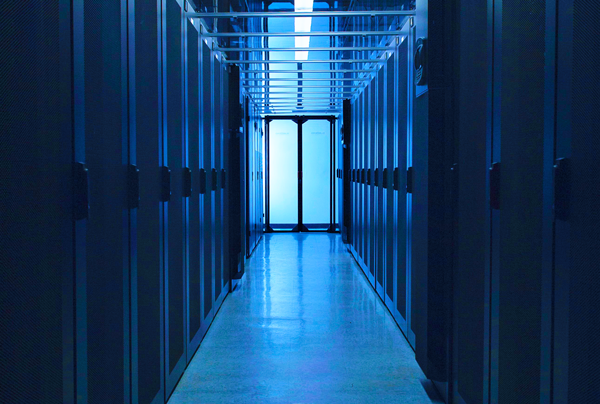
Colocation or ‘Colo’ is a solution offered by major data centers that provides businesses and organizations a place to host their servers and other IT hardware in a secure, high-tech facility. Whether it’s a small business that doesn’t want to hire an entire tech department, a large company that wants the stability and security of a data center, or somewhere in between, Colocation offers benefits to all types of businesses.
Security & Protection
Most data centers that offer colocation have high levels of physical security. Features such as security cameras, 24×7 on-site staff, individual cages or cabinets have locks, as well as biometric scanning at all access points and more! If the proper security is in place, a data center may also be SSAE-18 certified. This allows businesses to colocate their equipment and benefit from the SSAE-18 compliance already in place to avoid costly and time-consuming auditing of your company’s office or facility.
With Colocation, businesses own their equipment. Since they own the equipment, only their staff has access to it and the data it holds. Unlike typical web hosting solutions, where data may me stored on a shared server, they will be the only ones with access to their data.
Uptime
Most businesses run 24×7. Even after ‘store hours’ a business needs to be online and connected, especially if they operate an online store or website. Being down for minutes or an hour can spell disaster. Imagine an organization’s IT infrastructure down for a day or a week while the power’s down due to a storm. This disrupts potential clients from accessing their servers! In a colocation facility like TurnKey Internet’s Data Center, your company’s IT infrastructure is housed in our redundant, high-speed Internet-connected facility, with continuous power provided by industrial UPS battery systems and on-site diesel generators for emergency backups.
Room To Grow
In a typical office IT environment, if a company quickly needs to increase bandwidth or add physical space to the office, they could wait weeks or even months. When their infrastructure is located in a colocation facility, they can provide huge amounts of additional bandwidth within minutes or hours. A typical data center can have a bandwidth capacity 10,000 times that of a typical office cable Internet connection.
Cost Savings
Businesses that build their own on-site IT infrastructure can spend hundreds of thousands of dollars, if not millions, to have the same bandwidth capabilities and enterprise grade power and cooling systems featured at a colocation facility. Fiber optic lines, connecting to major internet hubs across the world are not purchased for pennies either! Add in redundancy to their office, and businesses are paying tens of thousands of dollars a year. On the other hand, if they instead chose to utilize a colocation facility, it might have cost them less than $100 a month.
Colocation is the ideal solution for companies, service providers, small businesses and IT resellers who want a stable environment in which to completely control their assets. It provides complete control of your hardware, software and networking to match your needs without worrying about the supporting infrastructure. By colocating with TurnKey Internet, you are able to focus on your business and not on office networking, power or server issues that plague localized installations and office infrastructure. We provide redundant networking, power and cooling to ensure your services remain online and accessible at all time.
To learn more and receive a FREE consultation, visit www.TurnKeyInternet.net/myplan Follow Us : ![]()
![]()
![]()
![]()
![]()
Share : ![]()
![]()
![]()
![]()
![]()
What is a Data Center? (A Basic Guide) no comments
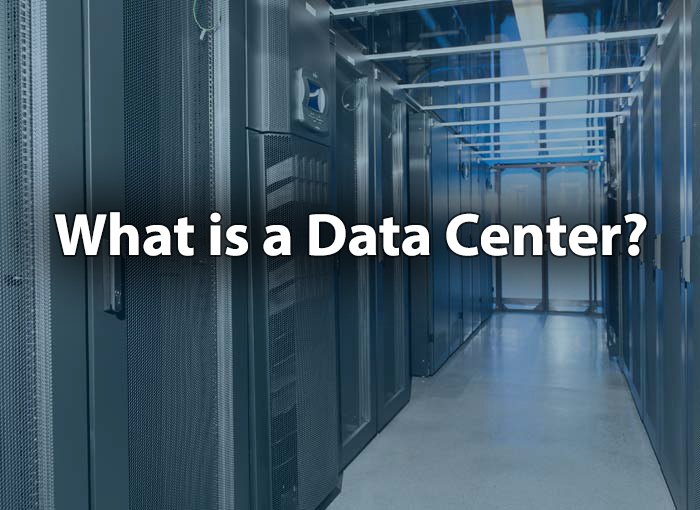
You don’t have to be a tech startup to benefit from ready access to your data. Digital information is becoming increasingly important to companies of all sizes in all kinds of industries. Data centers let you store, modify, access and back up your data safely, reliably and economically. Here’s how they work and why they might be right for your organization.
Data Center Basics
Data centers are dedicated physical facilities that house the networked computer equipment that contains your information. Although their design varies, the majority include some of the following common elements:
Servers
Servers are computers made to be constantly running. Unlike your personal desktop or laptop, most servers are headless, meaning that they lack monitors, keyboards and other interfaces that facilitate direct human interaction. Instead, they connect to other servers and clients via local network and internet connections. For instance, when you access your favorite websites, you’re really sending a request to a remote server that responds with the information needed to display the pages you want.
Racks
Servers are made to be compact, and racks let you stack armies of them in a small space. Racks may house their own cooling devices and monitoring components. Some even include custom components, vibration absorbing materials and soundproofing elements. Rack units come in a number of standardized sizes made for various equipment. Their design makes it possible to mount shared power units, route cables neatly and install servers in a fashion that permits free air flow.
Network Infrastructure
Linking servers together requires more than just network cables. Like the home or office networks that you might be familiar with, these systems require switches, routers, firewalls and other connecting hardware that controls the flow of data and permits secure external access between a remote client and a server. Most data centers feature redundant network connections from multiple Internet Service Providers (ISPs), allowing them to have a bandwidth capacity of more than 10,000x that of a typical office cable internet connection. This redundancy also allows some data centers the ability to offer Network Uptime Guarantees or Service Level Agreements (SLA) to their clients.
Environmental Systems
Even though racks and servers commonly have their own local cooling fans and ducts, all of the heat that they cast off has to end up somewhere. Cooling systems ensure that your data center doesn’t turn into a hot sauna by circulating air inside the facility, controlling moisture levels and exchanging heat using an air conditioner or similar device. These systems must be capable of constantly running since servers generate significant heat even when they’re not chugging along at full steam. Temperature management is one of the most important aspects of operating a data center. Proper cooling saves expensive equipment from overheating, shutting down unexpectedly or sustaining permanent damage.
Performance Monitoring Equipment
How do you know when your office server is running smoothly? Although checking your website is one option, it’s not very effective at stopping problems in advance. Performance monitoring devices featured in data centers let engineers observe the conditions in their facilities to ensure that everything is going according to plan. Tracking different variables, such as temperatures, power usage, and network activity give data centers deeper insights into the overall performance of your company’s servers, allowing them to take specific actions in case of problematic conditions.
Power Infrastructure
Most data centers feature power distribution units, or PDUs, and components like uninterruptible power supplies, or UPS, that continue providing electricity in case of blackouts. Data centers will also incorporate backup generators to ensure continuous power is delivered to your IT equipment in the event of a disaster which wipes out local utility power. Some data centers will even take an environmentally-conscious approach by leveraging green, clean energy via solar and hydro electric power.
Why Are Data Centers the Standard?
Data centers have come to dominate a landscape once populated with in-office server racks and general-purpose computer networks. While these elements still play roles in many business models and processes, their fall from prominence reflects a number of advantages that only data centers can claim.
Because they’re specifically designed to store servers and keep them running safely even if your office network goes down, professional data centers offer benefits such as:
- High availability, or the tendency for your website or company data to be accessible at all times
- Robust servers and networking hardware that can easily be scaled up or down
- Physical security brought about by the face that many facilities control who comes and goes
- Network security that meets modern and certified standards
- Faster network connections that provide quicker backups and more pleasant user experiences
- Fire, flood, and other forms of disaster recovery and mitigation for business continuity
- 24/7/365 IT Support Staff
Could Your Organization Benefit From a Data Center?
It may seem tempting to do everything in-house, especially if you’ve already invested in your own servers or a computer room. Although some organizations don’t need dedicated data centers, many are leveraging the advantages to propel their enterprises forward in a business ecosystem that’s only growing more digitized.
Do you want your site to be accessible at any time from any location in the world? Are you prepared to replace your critical network infrastructure in the event of a disaster? How much are you spending on facility power? While there’s definitely a call for keeping some computing hardware local and maintaining your own IT staff, data centers make it possible to reduce operating overhead and increase reliability in these and many other areas.
For organizations that depend on data to power their decision-making, connect users and get work done, the choice is clear. To learn more about incorporating data centers into your business model, contact TurnKey Internet today!
6 Reasons Your Business Should Use Data Center Colocation no comments
Businesses need their online and IT operations to run with super speeds, be secure, maintained, monitored, and most of all be redundant. Some businesses decide to use in-office or on-site server rooms, while others utilize colocation solutions from a data center.
A server room can be any room, in any building that houses servers. Whereas with colocation, your IT infrastructure is housed in a data center; a whole building designed to support and provide a secure, power protected, environmentally controlled space, used for accommodating servers, networking, and computer equipment. When deciding where your business should host/store it’s IT equipment, there are 6 main reasons why you should choose data center colocation over an in-office server room:
1. Security
Most Server Rooms do not have a high volume of security. Besides the buildings overall security, there may be a lock on the server room door. Data centers pride themselves in the security features they offer. All entrances and exits are secured with a key coded entry system, as well as alarms. Not just alarms for entry. Alarms for temperature control, air pressure, fire/water control, etc. All data centers have network cameras, accessible to their staff and security team in a needed event. The racks the servers are housed in are all locked. Only opened when your team needs to visit or by the data center staff, if needed.
2. Connectivity
What good is your server if you have a fixed bandwidth rate? Most server rooms are capped off by their local Internet Service Provider (ISP) as they are using a residential internet service. Data centers do not use any type of residential internet service and most times are able to set the bandwidth limits as they are needed by the server.
3. Redundancy
If there is a power failure at your business, do you have a backup power plan? Most server rooms run from the same power source, as the full office. Making your sites and servers go down if there is ever a power failure. Data centers have a plan for any type of failure. When it comes to power failures, most data centers have battery backups, automatically triggered if the main power supply is not responding. When the system sees the backup batteries are being utilized, another backup power source is engaged, the generator. At this point the battery backups turn off and all power is controlled by the generator until normal power is restored.
4. Affordability
With a server room, you are accumulating all the costs that go along with it. You may have had to cut advertising short or possibly even lay off good employees as the costs to maintain and house your equipment have risen. At a data center all those costs are tied into your colocation package and at a much, much lower cost.
5. Environment
Data centers control the cooling and humidity – to a precise and perfect level to keep your equipment running as long as possible. Storing equipment in non-conditioned environmental space like your server room or office closet will shorten the life of your equipment significantly (meaning it will cost you real money to replace broken equipment sooner). Electronics are sensitive to things like electrical and static shock, which occur due to improper humidity (moisture) and you can even find corrosion on the electronics in some poor environmental conditions. Its crucial if you have valuable equipment to store it in a properly humidified and cooled location like a data center.
6. Green
Some modern Data Centers, like TurnKey Internet’s Green Data Center , offer one additional benefit on-top of everything above. Your IT equipment and servers consume less energy, in terms of cooling and power draw, in a modern green-focused data center – and in TurnKey Internet’s data center your equipment consumes energy provided only by the Sun (on-site solar array) and water (Hydro power) providing zero carbon foot prints for your IT infrastructure versus having it at your office.
For more information about TurnKey Internet’s Data Center Colocation, or to speak with a Cloud Hosting specialist, call (877) 539-4638 or visit TurnKeyInternet.net
Follow Us :
Share :
Data Center Solutions for Disaster Recovery no comments
Businesses that have the potential to be affected in some way by natural disasters can avoid the complete standstill to their services by preparing and planning out just what they would do if their facility suffered a catastrophic loss. Hurricanes, earthquakes, tornadoes, snow storms, flooding, and fire are some of the most obvious causes of potentially disastrous losses that could halt the operations of a business.
In fact, the property of a business does not even have to have any direct damage for a natural disaster to halt their business. For example, loss of electricity, telephone, or internet connectivity can cause problems with functionality, as those services are paramount. If you understand that any type of disaster could destroy your computing infrastructure – where all of your company records and data are stored, which could quite possibly destroy your business – then you should have a plan in place to alleviate that possibility.
Off-Site Backups
At the very least, any business that uses computing to manage their operations should have an off-site back-up of their most important data and records. This is not a very expensive strategy, it is something that can be entirely automated, and it does not even need to be accessed until you actually need to use it. There are automated back-up systems available from most data centers, which back-up your data as frequently as you desire. The incremental changes made in the time-frame chosen are then sent across the internet through an encrypted protocol, and stored in a managed backup system at the data center. Usually, the client is provided with a secure web interface to access those files as needed. These backups can also be used to restore individual data files that may have become deleted or damaged at any time, and downloaded back to the computers in your office.
Infrastructure as a Service (IaaS)
The next step up from simply backing-up your data for protection from a disaster would be hosting some, to all, of your regular computing infrastructure in a data center. This type of solution is known as Infrastructure as a Service or IaaS. If you hosted your main office server in a data center and accessed your files over the internet from the PCs in your office, you could survive a disaster from a computing standpoint. All of your important data could then be accessed from a temporary, remote location, or even by having your employees work from home until the office is re-established.
Many companies are now hosting their entire computing infrastructure in a data center; everything from virtual PCs to their application servers. These can then be accessed through just about any device that is connected to the internet, such as a PCs and smartphones.
Email and Phone
Communicating with your customer base during and after any disaster is vital in many cases. When your email and telephone systems are cut off, and you and your customers can no longer communicate, this could be extremely damaging to your business. By hosting your email server at a data center, you have access to your email system through almost any device connected to the internet.
Another popular data center service is VOIP-based hosted phone systems. In a VOIP-based system, the PBX system normally nailed to the wall in an office is replaced by a PBX server in a data center. Management and administration of the system is then done though a web interface. All phone communication is channeled through voice over Internet protocol (VOIP). The advantage of this in a disaster is that your phone system is always intact. You can access your administration portal over the Internet and change any settings that may be necessary, such as adding additional extensions for remote users. Staff members can work from remote locations or at home, by accessing the phone system with a softphone on their PC or by having their calls transferred from their extensions to their cell phones.
TurnKey Internet’s Data Center
Data centers are the ideal solution to the issues surrounding disaster recovery. The key reason is that they have multiple redundancies in place to provide 100% up-time guarantees. At TurnKey Internet, we have multiple fiber providers supplying our internet and bandwidth through diverse physical paths into our data center. We have state-of-the-art networking equipment in place to maintain your connections, in case one or some of the fiber connections coming into the facility are disrupted.
Additionally, our power supply is backed-up with both a robust battery back-up supply (UPS) to all servers and equipment, as well as dual on-site diesel generators that can power our data center long-term if necessary. For these reasons and more, anyone considering disaster recovery planning should consider the options available from TurnKey Internet, to insure that their business is not damaged long-term by a catastrophic event that had not been planned for.
To get started, visit https://www.turnkeyinternet.net/myplan for a FREE consultation. Follow Us : ![]()
![]()
![]()
![]()
![]()
Share : ![]()
![]()
![]()
![]()
![]()
What is a Data Center? (Infographic) 1 comment
Data Centers: Better Protection For Your Company’s Data no comments
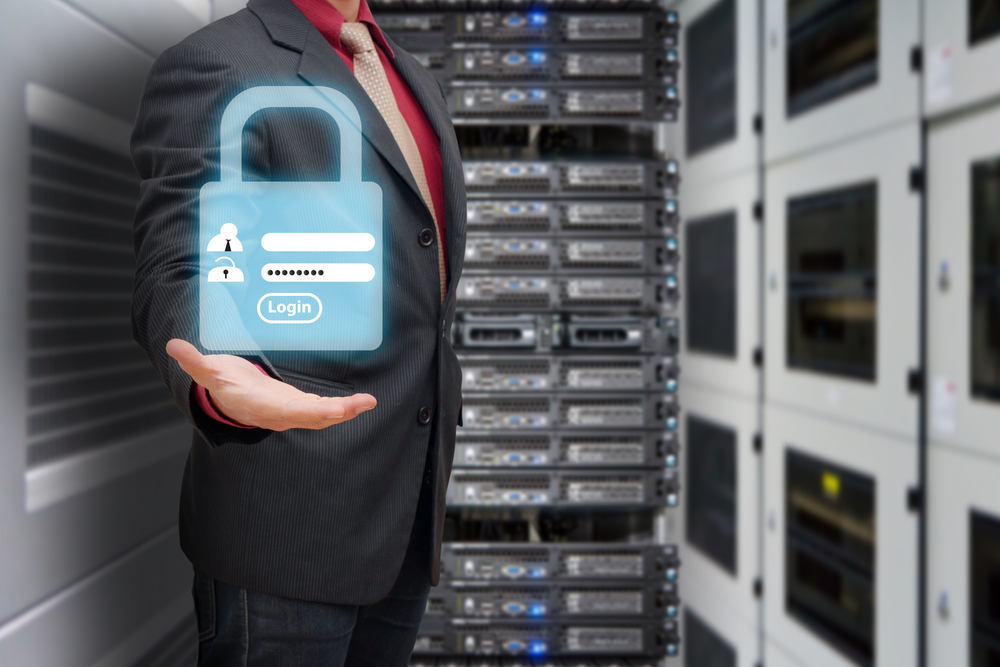
The question of where to store data and sensitive information continues to concern many businesses. If you are like most companies, you worry about the security of your data. You may be thinking that you need to keep the data as close to you as possible, storing it at your own office server room where you can “keep an eye on everything.” How could you possible know what is happening with your data at servers far away from your office space?
The fact of the matter is, however, that your data is much more secure at a data center than on your in-house servers. A data center is able to offer you many more security features and guarantees for your data than you have in your own space. A quick look at the many benefits of cloud storage may help convince you.
- Data security – One of the main priorities of a data center is security. With some high-profile companies becoming the victims of data breaches in the last couple of years, data centers have upped their investments in access control, identity management, intrusion prevention and protection. These improvements have resulted in increased security protocols and more protection for communication between users and servers.
- DDoS protection – Distributed Denial of Service (DDoS) attacks are designed to overwhelm servers, flooding them with requests until the security breaks down and actual user needs are ignored. Such an attack can derail a business quickly, losing revenue, customer trust and authority. Data centers are now providing services that monitor and protect against DDoS attacks.
- Reduced in-house data costs – Migrating all of your IT infrastructure to a data center will allow you to reduce the size and cost of your on-site location. For example, you will be able to remove servers, lower your software costs and potentially reduce IT staff without compromising the integrity or security of your data. Most data center solutions are paid on an as-needed basis, so you will only pay for the amount of server and infrastructure capacity that your business needs, and you can change that amount at any time.
- Constant availability – Data centers are exceptionally reliable. The connection is on 99.99 percent of the time, only going down for maintenance, and you will have access to your applications and data at all times and from practically anywhere.
- Improved mobility and collaboration – Cloud storage is available to those who need it no matter where they are located. With today’s internet connections via tablets and smartphones, you will be able to access your data and your applications no matter what you are doing. You can also share your information and conduct collaborations via shared storage capabilities offered by data center providers
Once you have decided that moving your IT infrastructure to a data center is the right decision for your business, you will need to find the right provider. You are placing all of your important data in the hands of this provider, so you must make sure that you choose the right one. Technology is constantly changing and improving, and you need to be able to trust that the data center you choose will keep up with the evolution of security needs. Find out whether there are security protocols in place, including:
- Physical security of the data center
- Environmental controls
- Back-up measures for power and internet
- Back-up measures for your data
- Technical support when you need it
Frequent system audits are also necessary in order to ensure that all servers meet or exceed industry standards for data security. When you are searching for a data center, ask potential candidates about their compliance to SSAE-16/18 SOC 1 and SOC 2. This set of standards measures the amount of control that a service organization maintains over your sensitive data and financial information. An audit will report any flaws in data flow.
You should also inquire about compliance to the Health Insurance Portability and Accountability Act (HIPAA). This regulation ensures the security and privacy of private health information that is stored on cloud services.
If your data center choice is compliant with both of these standards, you can rest assured that your sensitive data will be monitored and its integrity will be maintained.
TurnKey Internet owns and operates its own private, SSAE 18 SOC 1 & SOC 2 certified, HIPAA compliant, data center located in Albany, NY. Owning our data center, we have been able to design, build and maintain every aspect of its construction to provide an ideal hosted server environment. This allows us to provide our clients fast, secure and reliable performance at all times. We’ve also been able to leverage the state-of-the-art in green technologies, making our data center among the most energy-efficient world-wide. For more information about TurnKey Internet’s Green Data Center, visit: https://www.turnkeyinternet.net/datacenter Follow Us : ![]()
![]()
![]()
![]()
![]()
Share : ![]()
![]()
![]()
![]()
![]()
TurnKey Internet Completes Data Center Network Infrastructure Upgrades no comments
LATHAM, NEW YORK (November 5, 2018) – Leading Data Center and Cloud Hosting Solutions provider TurnKey Internet, Inc. announced today the completion of network infrastructure upgrades to its flagship data center in New York’s Tech Valley Region. The upgrades include multiple 100G Tier 1 transit and dark fiber providers for increased redundancy and performance, as well as upgraded Cisco and Juniper network hardware to help meet the growing demand for Colocation and Cloud solutions.
TurnKey Internet’s latest upgrades to its flagship New York Data Center continues to strengthen the company’s enterprise-class cloud-based infrastructure, which currently provides solutions to clients in over 150 countries. During the upgrade, TurnKey made significant cost investments into their core routing and distribution hardware, including the installation of multiple fully redundant, high-performance Juniper MX480 routers. The new routing hardware delivers unmatched flexibility and reliability to support advanced services and applications, while also separating control and forwarding functions, to provide maximum scale and intelligent service delivery capabilities.
In addition to the hardware upgrades, TurnKey also joined the New York International Internet Exchange (NYIIX) via direct fiber connection. Based in New York City, the NYIIX Peering Exchange is one of the largest neutral internet exchange points in the world. NYIIX’s neutral, scalable peering infrastructure assures reliable, stable internet connectivity by allowing traffic to flow through the fastest route, no matter who owns and operates the fiber. This new partnership allows TurnKey to peer bandwidth with some of the largest names in the industry including Microsoft, Amazon, Apple, and more.
“The latest infrastructure upgrades to our data center matches our vision of providing our customers access to best in class enterprise-grade IT solutions on a ‘turnkey’ platform,” remarked Adam Wills, CEO of TurnKey Internet. “Our data center is now the premier data center facility for performance, redundancy, and reliability within 50 miles of New York’s Capital Region.”
For more information about TurnKey Internet’s Data Center, or to speak with a Cloud Hosting Solutions expert, visit www.turnkeyinternet.net
About TurnKey Internet
Founded in 1999, TurnKey Internet, Inc. is a full-service Cloud Hosting Solutions provider with data centers in New York and California specializing in Infrastructure as a Service (IaaS) to clients in more than 150 countries. Services offered in both East Coast and West Coast, USA – include Public Cloud, Private Cloud, Dedicated & Bare Metal Servers, Backup & Disaster Recovery, Online Storage, Web Hosting, Managed Hosting, Hybrid Solutions and Enterprise Colocation. Headquartered in New York’s Tech Valley Region, TurnKey Internet’s Flagship company owned data center is SSAE 18 SOC 1 & SOC 2 certified, as well as HIPAA compliant. The facility is powered exclusively by on-site solar and hydroelectric sources to provide a 100% renewable energy footprint and in 2013 was designated the 39th ENERGY STAR® certified data center in the United States. For more information, please call (518) 618-0999 or visit www.turnkeyinternet.net Follow Us : ![]()
![]()
![]()
![]()
![]()
Share : ![]()
![]()
![]()
![]()
![]()

